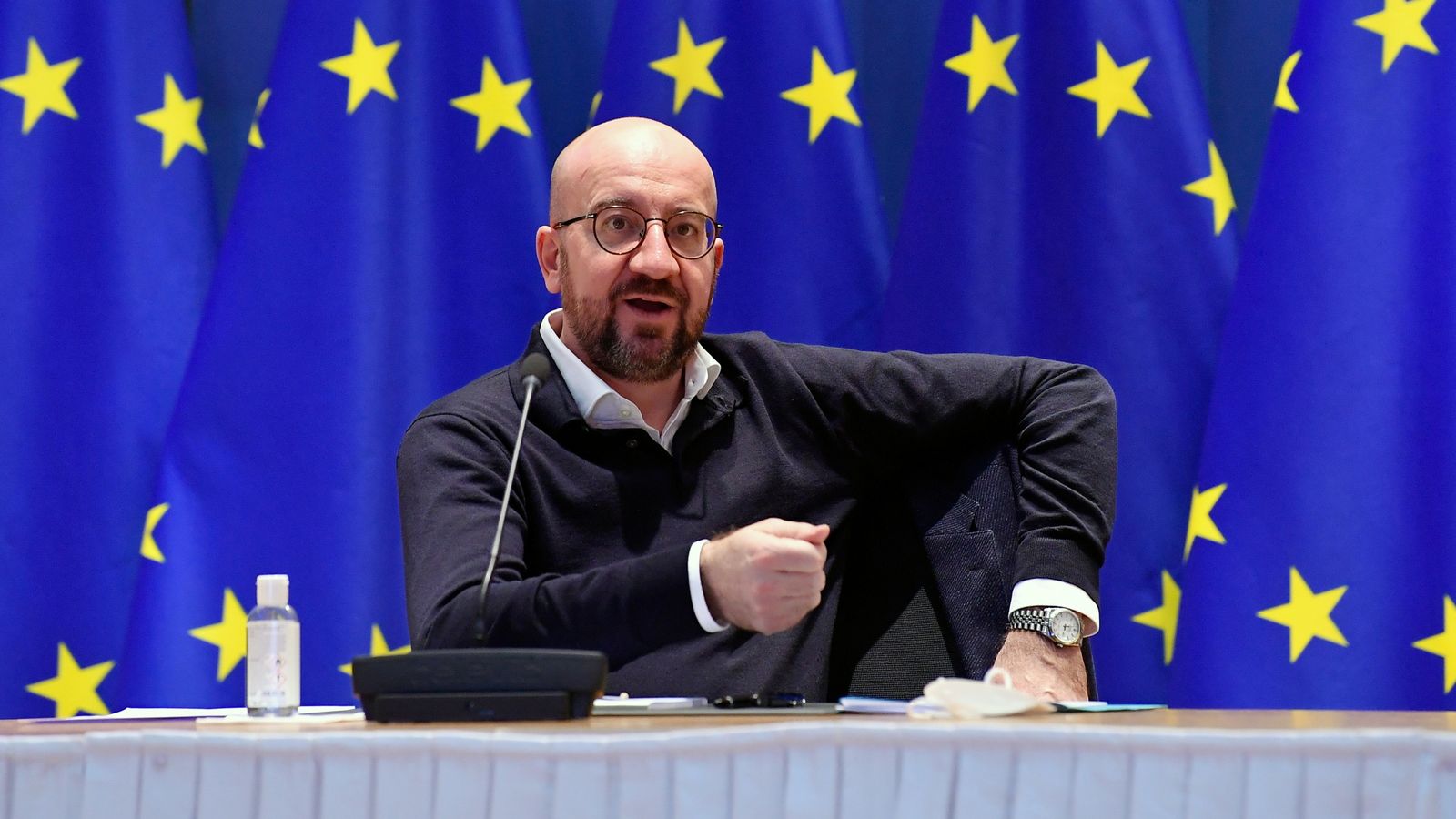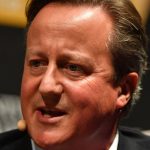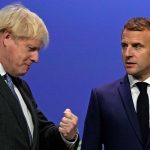A new UK-EU row has broken out after the bloc’s chief made “completely false” claims that Britain has imposed an export ban on COVID-19 vaccines.
Foreign Secretary Dominic Raab is understood to have written to European Council President Charles Michel to “set the record straight” over remarks he made on Tuesday.
And a top EU diplomat has also been summoned to a meeting at the Foreign Office as part of the dispute.
It's natural to be impatient, but with time we will win the war against #COVID19.
The fight against #COVID19 is not a sprint: it’s a marathon in which Europe is well placed to lead.
5 reasons why 🇪🇺 will be a major ally in freeing the world from this virus 👇
Mr Michel had used the latest issue of his regular newsletter to defend the bloc’s response to the COVID crisis.
Describing himself as “shocked” at accusations of “vaccine nationalism” levelled against the EU, Mr Michel wrote: “The facts do not lie.
“The United Kingdom and the United States have imposed an outright ban on the export of vaccines or vaccine components produced on their territory.”
Mr Michel did acknowledge the EU had “put in place a system for controlling the export of doses produced in the EU”.
But he insisted the “objective” of these controls was to “prevent companies from which we have ordered and pre-financed doses from exporting them to other advanced countries when they have not delivered to us what was promised”.
“The EU has never stopped exporting,” Mr Michel added.
A UK government spokesman swiftly denied the claim that it had imposed an export ban on coronavirus vaccines.
And Mr Raab later wrote to Mr Michel to stress “we are all facing this pandemic together”.
It is thought the foreign secretary made clear that “the UK government has not blocked the export of a single COVID-19 vaccine or vaccine components” and that “any references to a UK export ban or any restrictions on vaccines are completely false”.
A representative of the EU’s delegation to the UK has also been summoned to a meeting at the Foreign Office to discuss the bloc’s repeated claim of an export ban, sources said.
The latest tension over COVID vaccines follows January’s dispute when the EU threatened – and then swiftly abandoned – an attempt to override post-Brexit arrangements for Northern Ireland as part of its disagreement with vaccine manufacturers.
The EU has faced heavy internal criticism over its purchase and rollout of COVID vaccines, which has been markedly slower than the UK’s.
Meanwhile, both Germany and France have reversed their stance on not recommending the use of the Oxford/AstraZeneca vaccines for people aged over 65.
Last week, Australia asked the European Commission to review Italy’s decision to block the export of 250,000 doses of the Oxford/AstraZeneca vaccine, although it played down the impact the action would have on its vaccination programme.






















